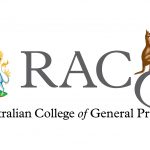Less than two months into his tenure at the college, new CEO Paul Wappett has announced a major corporate restructure.
The RACGP will undergo a significant redesign in a bid to better meet member needs, newly installed CEO Paul Wappett announced today.
Mr Wappett, who started in the role last month, is a lawyer by training but has industry experience in the higher education sector.
Under the restructure plans, the nine college divisions will be rearranged around three core concepts; advocacy and policy, education and standards, and member engagement.
Business support services – presumably the existing legal, finance and operations divisions – will come under one umbrella.
What’s changing for members
If all goes to plan, according to Mr Wappett, RACGP members will not notice much change in terms of the way they interact with the college.
“Hopefully, what [our members will] notice is that our response times are much shorter and much more efficient, and they’ll notice that it’s easier to actually get answers to their questions,” he said.
Instead, changes may be more obvious in terms of the value which the college offers and the way in which it interacts with government.
“Among all of the things that members say that they want from the college, an effective lobbying and advocacy voice was one of the highest things that they had on their list of requirements,” Mr Wappett said.
“That being the case, we need to be able to respond to that and make sure that we’re doing it as effectively as we possibly can.”
Asked whether the college would consider collaborating with a lobbying group such as the budding Australian Society for General Practice, Mr Wappett said: “I’m open to collaborations of any kind … so long as it’s reaching the right sort of outcomes for GPs and for our members in particular.”
Funding reform
He also earmarked a potential plan to push for funding reform – prompted by questions over president Dr Karen Price’s advice to GPs at the AGM to stop universal bulk-billing.
“What we’re keen to make sure that we do provide government with a reason why they should compensate GPs better than they’re currently doing on the MBS schedule,” the RACGP CEO said.
“At the moment the response from government is always ‘well, we don’t need to do anything because of the number of patients who are able to access bulk-billing’.
“[Because of that attitude], having a way in which GPs can make the case for change is really important.”
CPD
Mr Wappett said that the college was not spooked by changes to legislation which now allow GPs to get their CPD points from other organisations.
“I actually like contested markets, I like it when you actually have a situation in which you provide value to people to pay you money,” he said.
“I think it’s useful for us to be able to say to our members, ‘your renewal should be based on whether or not you’re satisfied with the service that we’re providing you, and the value that we’re providing to you.’”
While he acknowledged negative feedback about the upcoming CPD changes which require GPs to complete activities on a yearly rather than triennium basis, and to “self-reflect” on their practice, he said that there was little that the college could do to stop them.
“Like it or not, that’s the requirements,” Mr Wappett said.
“We’re here to make sure that we can provide support to GPs to be able to meet their requirements and do it in a way that reflects the work that they’re already doing.”
What’s changing for the college
The leadership team will be “realigned” and as a result, an unconfirmed number of college executives will be leaving the organisation by the new year.
“That leaves us with a new and leaner leadership team, [a move which is] really about being focused on being collaborative, aligned and set up to empower people to perform as best they can, as well as making sure that there’s clear authority for decision making,” Mr Wappett said.
There will be two new positions created, an externally recruited chief operating officer who will manage the business support services, as well as a chief of staff.
“The chief of staff role is there to support both the CEO and the president to make sure that there’s an alignment between the way the members interact with the president and the way that members interact with the organisation,” said Mr Wappett.
According to Mr Wappett, there has previously been “a little bit of friction” in terms of making sure the work that the president gets involved in with can “live inside of the college as well”.
RACGP faculties will now report directly to the executive team.
Why the changes are happening
The restructure follows a review of the RACGP’s capabilities and structure in September.
“The review revealed some strengths, but also some gaps,” Mr Wappett said.
“And of course, it’s my job to fill the gaps.”
He said he has already encountered “an environment of excessive red tape” in his short stint as CEO, which he felt made it difficult to achieve any real change.
“As things stand, we’ve got limited integration and communication across different parts of the organisation,” he said.
“Our structure been really functionally based and focused inwards, rather than on our members.”
The review will not be shared externally.





